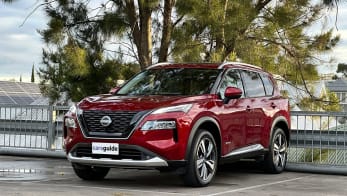A radical plan to impose direct charges on motorists could help add almost $35 billion a year to the national economy by 2040, modelling commissioned by Infrastructure Australia finds.
The federal government's independent infrastructure adviser has recommended direct user charging for all vehicles within 10 years, with existing taxes and charges such as fuel excise and registration fees scrapped.
If the recommendations were adopted, trucks would move to such a system in the next five years, with payments based on the location, time and distance of their travel, and using technologies such as satellite tracking.
The recommendation will be a test for Malcolm Turnbull given Tony Abbott rejected calls by the Productivity Commission in 2014 to charge drivers for the distance they travel.
The average motorist now pays $592 a year in fuel excise charged at the bowser (but not displayed on the fuel docket), $263 in registration fees, $21 in licence fees and $136 in stamp duty, the report says.
Moving to a more user-pays system would link supply to demand
IA's 15-year infrastructure plan says the current system is "unfair, unsustainable and inefficient".
Motorists in the bush drive on poorly maintained roads yet pay for a share of the city roads they do not use, while fuel excise revenue will decline as cars become more fuel-efficient, the IA report says.
An audit by Infrastructure Australia, released last year, found that traffic gridlock could cost $53.3bn a year by 2031, up from $13.7bn in 2011.
The 15-year plan argues that road-user charging could reduce congestion as charges would be directed back to new roads, rather than going into consolidated revenue.
The report says that moving to a more user-pays system would link supply to demand.
"This will be fundamental to securing the required funding and sustainably improving the level of service," the report says.
Peak motoring groups previously have argued that user charges could be fairer than excise
"That is why the introduction of direct heavy-vehicle charging within five years, and direct user charging for all vehicles within 10 years, alongside the removal of existing taxes and charges, should be a priority for Australia's governments to provide greater fairness and equity in how we pay for roads."
Peak motoring groups previously have argued that user charges could be fairer than excise.
Modelling by PwC, commissioned by IA, finds that transport changes would lift the annual gross domestic product by $23.8bn in 2031 and $34.8bn in 2040.
Western Australia would be the biggest beneficiary, getting a lift of $12.2bn in 2040. NSW, the most populous state, would derive an $8.6bn boost.
The modelling assumed that road-user charges included congestion pricing from 2028, and include the economic boost by opening public transport to competition, having providers compete to deliver services.
The report said governments would have to consider the implications of greater user charging on people on lower incomes, and use the tax and welfare system to compensate them for disadvantage.


.jpg)

.jpg)


.jpg)



.jpg)

.jpg)


.jpg)


Comments